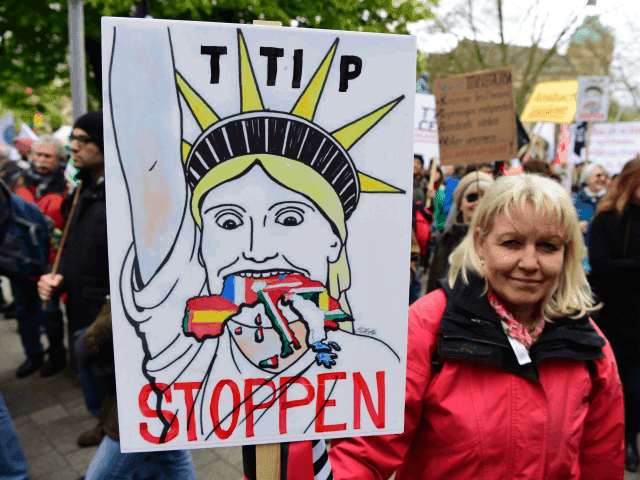NEW YORK (Reuters) – U.S. and European Union trade officials said on Thursday they would not settle for a limited trans-Atlantic free trade deal that ignores deep divisions on agricultural products, services, public procurement and dispute resolution.
In separate briefings during the latest negotiating round in New York, the U.S. and EU officials said they would push for a comprehensive Trans-Atlantic Trade and Investment Partnership, or T-TIP, before U.S. President Barack Obama leaves office in January.
“We are not going to shoot for or accept a ‘T-TIP light,’ a U.S. Trade Representative official said on condition of anonymity because of the sensitivity of the talks.
“It has to be comprehensive, it has to be ambitious and we do think we have the time that we need this year to complete such an ambitious deal,” the official added.
But the U.S. officials and their European counterparts said bridging gaps would take a lot of work and that progress this week had centered mainly on non-controversial technical language. They are trying to lay the groundwork to have all but the thorniest problems solved by the autumn.
Among the deepest divides concern Europe’s food safety rules that exclude American beef raised with hormones, genetically modified foods and Europe’s many local food naming rules, such as for asiago and feta cheeses.
U.S. negotiators have complained those rules have fuelled a $12 billion (8 billion pounds) annual food trade deficit with the EU, $1 billion in cheese alone.
Teamsters union legislative representative Michael Dolan told a forum for industry, labour and other trade stakeholders on Tuesday that he believed the two sides were too entrenched on some key issues and that those should be excluded. He recommended leaving out the food safety standards and naming rules, known as “geographical indications.”
Similarly, he said a deal should exclude European demands for greater access to U.S. federal, state and local government procurement, which often carries “buy American” or local content standards.
“Agree to disagree on government procurement,” Dolan said. “Geographic indications? Not on the menu.”
An EU official told reporters that European negotiators were disappointed in the latest U.S. procurement offer but were determined to keep working towards a deal.
“We are obviously working hard to see where we can try to conclude these negotiations before the change of administration, without in any way compromising the substance of this agreement,” the official said. “We don’t believe in a ‘TTIP light.'”
(Reporting by David Lawder; Editing by Peter Cooney)

COMMENTS
Please let us know if you're having issues with commenting.